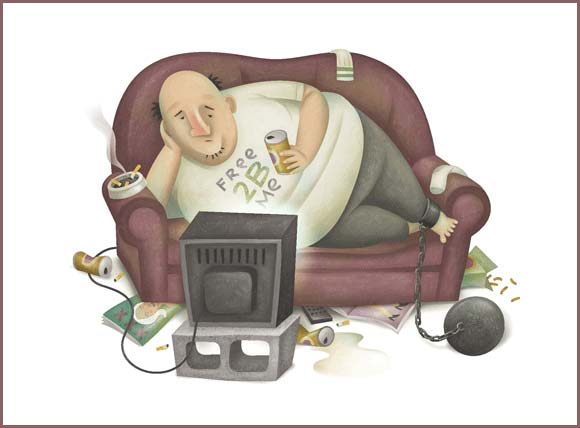
by Esoteric | Mar 16, 2012 | Buddha

“Thousands of candles can be lit from a single candle, and the life of the candle will not be shortened. Happiness never decreases by being shared.”
This quote by the Buddha carries a profound message about the nature of happiness and its potential to spread without diminishing. Let’s delve into its meaning:
“Thousands of candles can be lit from a single candle” implies that a single source of light can ignite countless other candles. It signifies the power of sharing and the ability to inspire and uplift others through our actions and attitudes. Just as the flame of one candle can be used to light many others, our own happiness and positive qualities have the potential to bring joy and positivity to those around us.
“The life of the candle will not be shortened” suggests that the act of sharing happiness does not diminish one’s own happiness. In fact, it highlights the unique quality of happiness—unlike material possessions that may decrease in value or quantity when shared, happiness remains abundant and undiminished when it is shared with others. By spreading happiness, we do not lose our own happiness but rather enhance it by creating a positive and interconnected environment.
“Happiness never decreases by being shared” conveys the timeless truth that sharing happiness not only benefits others but also deepens and expands our own sense of well-being. In fact, the more we share our happiness with others, the more it grows within us. By cultivating and sharing happiness, we contribute to the well-being and happiness of the collective, fostering a positive and harmonious atmosphere.
This quote reflects the Buddha’s teachings on compassion, generosity, and interconnectedness. It encourages us to cultivate qualities such as love, kindness, and joy and share them freely with others. Through our actions and attitudes, we have the potential to inspire and uplift those around us, creating a ripple effect of happiness and positivity.
Furthermore, this quote reminds us of the importance of community and support in our own pursuit of happiness. It emphasizes that our well-being is intimately tied to the well-being of others. When we share our happiness, we contribute to the happiness and well-being of the whole, fostering a sense of interconnectedness and unity.
In essence, the quote by the Buddha encourages us to cultivate and share happiness, knowing that it is not a finite resource but an infinite and renewable one. By spreading happiness, we not only brighten the lives of others but also enhance our own well-being, creating a virtuous cycle of joy, compassion, and interconnectedness.

by Esoteric | Mar 16, 2012 | Buddha

“An idea that is developed and put into action is more important than an idea that exists only as an idea.”
This quote by the Buddha emphasizes the significance of turning ideas into action and highlights the importance of practical application over mere conceptualization. Here’s an elaboration on its meaning:
“An idea that is developed and put into action” refers to the process of taking an idea and actively working on its realization. It emphasizes the importance of bringing thoughts and concepts into the realm of practicality through concrete actions and efforts. Merely having an idea is not enough; it is the subsequent steps taken to develop and implement the idea that hold greater significance.
“is more important than an idea that exists only as an idea” suggests that ideas that remain stagnant and exist solely in the realm of thoughts have limited value. While ideas can be inspiring and have potential, their true worth lies in their application and impact on the world. Ideas that are brought to life through actions can have tangible results, create change, and benefit oneself and others.
The quote encourages individuals to move beyond the realm of speculation and take initiative in manifesting their ideas. It highlights the transformative power of action, as it is through action that ideas gain the potential to make a meaningful difference in our lives and in society.
In a broader context, this quote aligns with the Buddha’s teachings on mindfulness and the importance of applying wisdom in one’s daily life. The Buddha encouraged his followers to actively practice the teachings rather than merely understanding them intellectually. It is through the practical application of wisdom that true transformation and liberation can be achieved.
Ultimately, the quote serves as a reminder to not get caught up solely in the realm of ideas and concepts but to take action and put those ideas into practice. By doing so, we have the opportunity to bring about positive change, grow personally and spiritually, and contribute to the well-being of ourselves and others.

by Esoteric | Mar 16, 2012 | Buddha

“The tongue is like a sharp knife… Kills without drawing blood.”
This quote by the Buddha employs a metaphor to convey the power and potential harm that can arise from the words we speak. Here’s an elaboration on its meaning:
“The tongue is like a sharp knife” suggests that our words possess the potential to cause harm, just as a sharp knife can inflict wounds. It draws attention to the fact that our speech carries significant power and impact. Like a knife, words can be used skillfully for constructive and beneficial purposes, or they can be used carelessly and cause damage.
“Kills without drawing blood” indicates that the harm caused by our words may not be physical, but it can be equally damaging on an emotional or psychological level. Just as a sharp knife can cause injury without visibly drawing blood, our words can deeply wound others without leaving any physical marks. This highlights the potential for verbal communication to have lasting effects on individuals, affecting their self-esteem, relationships, and overall well-being.
The quote emphasizes the importance of mindful and compassionate speech. It urges us to be aware of the impact our words can have and to use them wisely and responsibly. It encourages us to cultivate kindness, empathy, and understanding in our communication, avoiding harsh or hurtful language that can inflict emotional pain on others.
In Buddhist teachings, right speech is considered an integral part of the Noble Eightfold Path, which is a guide to living a moral and virtuous life. Right speech entails refraining from lying, divisive speech, harsh or abusive language, and idle gossip. It encourages communication that is truthful, beneficial, and kind, fostering harmony and understanding.
By recognizing the power of our words and using them with mindfulness and compassion, we can create a more harmonious and supportive environment for ourselves and others. The quote serves as a reminder to be conscious of the impact our speech can have and to choose our words wisely, promoting harmony, understanding, and the well-being of all involved.

by Esoteric | Mar 16, 2012 | Buddha

“Every human being is the author of his own health or disease.”
The quote “Every human being is the author of his own health or disease” attributed to the Buddha carries a profound message about personal responsibility and the interconnectedness of our actions and well-being. Here’s an elaboration on its meaning:
The quote suggests that individuals are ultimately responsible for the state of their health, both physical and mental. It emphasizes the role of personal choices, actions, and attitudes in shaping one’s well-being. Rather than seeing health or disease as solely determined by external factors or circumstances, the Buddha highlights the power and agency of each individual in influencing their own health.
“Author of his own health or disease” implies that our lifestyle choices, habits, thoughts, emotions, and behaviors significantly impact our overall well-being. By engaging in healthy practices such as proper nutrition, regular exercise, adequate rest, and positive mental attitudes, we can contribute to our own health. Conversely, engaging in unhealthy habits, such as a sedentary lifestyle, poor diet, excessive stress, or negative thought patterns, can contribute to the development of disease or imbalances in the body and mind.
This quote aligns with the understanding of health in many traditional systems of medicine, including Ayurveda and Traditional Chinese Medicine, which emphasize the importance of maintaining balance and harmony within oneself. It acknowledges that our actions and choices can either support or undermine this balance, leading to health or disease.
However, it is crucial to note that this statement does not imply that all health conditions or diseases are solely the result of individual actions or choices. External factors beyond our control, such as genetic predispositions, environmental influences, or accidents, can also impact our health. Additionally, some illnesses require medical intervention and treatment that go beyond personal responsibility alone.
In essence, the quote by the Buddha serves as a reminder of the significant role we play in shaping our own well-being. It encourages individuals to take an active role in caring for their health by making conscious choices that support physical, mental, and emotional well-being. By recognizing and embracing our own agency, we can strive towards a healthier and more balanced life.

by Esoteric | Mar 16, 2012 | Buddha

“Do not overrate what you have received, nor envy others. He who envies others does not obtain peace of mind.”
“Do not overrate what you have received”: The Buddha advises against attaching excessive importance or value to the things we possess or have received. This can include material possessions, social status, achievements, or any form of external validation. Overrating what we have can lead to a sense of entitlement, arrogance, or a false sense of security. It can also create a constant striving for more, which can perpetuate dissatisfaction and prevent us from finding contentment in the present moment.
“Nor envy others”: The Buddha warns against feeling envy towards others. Envy arises when we desire what someone else possesses, whether it be their possessions, qualities, achievements, or circumstances. Envy often stems from a sense of inadequacy or a feeling of lacking something that others seem to have. However, the Buddha advises against indulging in envy because it only breeds discontentment and a restless mind.
“He who envies others does not obtain peace of mind”: The Buddha emphasizes that envy is detrimental to our own well-being and inner peace. When we envy others, we are caught up in comparing ourselves to them and feeling discontent with our own situation. This state of mind prevents us from finding peace and contentment within ourselves. Envy perpetuates a cycle of craving and attachment, which keeps us trapped in a state of dissatisfaction and prevents us from experiencing genuine happiness.
In essence, the Buddha’s teaching encourages us to cultivate contentment, gratitude, and inner peace. By not overrating what we possess and not harboring envy towards others, we can free ourselves from the constant pursuit of external validation and comparison. Instead, we can focus on our own personal growth, develop a genuine sense of self-worth, and find peace of mind in the present moment. The path to peace and contentment lies in cultivating an attitude of non-attachment and embracing the present as it is, without constantly longing for what others have or overrating our own possessions and achievements.






